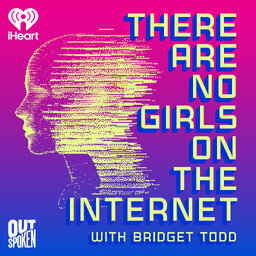Elizabeth Holmes is going to prison, Elon Musk’s racist tweets, AI senate hearings, and Montana bans Tik Tok — NEWS ROUNDUP
We’re doing a new thing where we summarize tech, media, and internet news you may have missed this week.
For more content like this, check out our Patreon: Patreon.com/TANGOTI
Banning TikTok would hurt marginalized communities w/ Abbie Richards: https://podcasts.apple.com/us/podcast/banning-tiktok-would-hurt-marginalized-communities/id1520715907?i=1000606352152
In 1 playlist(s)
There Are No Girls on the Internet
Marginalized voices have always been at the forefront of the internet, yet our stories often go over…Social links
Follow podcast
Recent clips

Chris Pratt is the Least Interesting Thing About the Hallow App (A Message to Live Action)
1:29:09

BAFTAs racial slur; Nicki Minaj bot network; TikTok “Psychic” faces Defamation trial for University of Idaho murders – NEWS ROUNDUP!
1:16:39

A TANGOTI Announcement We've Been Sitting On
47:34
 There Are No Girls on the Internet
There Are No Girls on the Internet